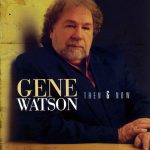Bee Gees – In My Own Time


The year is 1967. The music landscape pulsates with the burgeoning British Invasion, where the likes of The Beatles and The Rolling Stones reign supreme. Yet, amidst the wave of electric guitars and mop-top haircuts, a trio of brothers from Down Under emerges with a sound both distinct and captivating. Enter the Bee Gees, a name soon to be synonymous with disco anthems and soaring falsettos. But before the stadium tours and Saturday Night Fever soundtrack, there was a fledgling band honing their craft, a glimpse of which can be found in their debut single, “In My Own Time”.
Composed by brothers Barry and Robin Gibb, with Maurice Gibb on bass and guitar, “In My Own Time” stands as a testament to the Bee Gees’ early musical direction. Produced by Ossie Byrne and released on their aptly titled first album, Bee Gees’ 1st, the song showcases a sound far removed from the disco-driven phenomenon they would later become. Here, we encounter a band heavily influenced by the pop and rock sensibilities of the era, with a touch of theatricality sprinkled in for good measure.
While “In My Own Time” failed to crack the charts in the UK, it did garner some traction in Australia, their adopted homeland. This modest success served as a stepping stone for the brothers, who would soon refine their sound and capture the attention of international audiences. However, the song’s true significance lies beyond mere chart positions. It serves as a valuable historical artifact, offering a glimpse into the Bee Gees’ formative years, a time before the signature falsettos and four-on-the-floor rhythms became their trademark.
“In My Own Time” is a song brimming with youthful exuberance and a hint of melancholic longing. The track opens with a shimmering acoustic guitar figure, setting the stage for the brothers’ signature vocal harmonies. Barry and Robin’s voices intertwine effortlessly, showcasing a blend that would become their defining characteristic. The lyrics, though shrouded in some mystery, hint at themes of independence and yearning, a sentiment likely relatable to the young men navigating the complexities of the music industry.
By dissecting “In My Own Time,” we gain a deeper appreciation for the Bee Gees’ artistic evolution. It’s a song that predates the disco juggernaut, revealing a band with a strong foundation in pop and rock traditions. This early work allows us to witness the raw talent and burgeoning songwriting skills of the Gibb brothers, a talent that would soon propel them to international superstardom. So, before diving into the Saturday Night Fever frenzy, take a moment to savor “In My Own Time,” a song that whispers of the Bee Gees’ potential, a potential that would soon roar across the globe.











